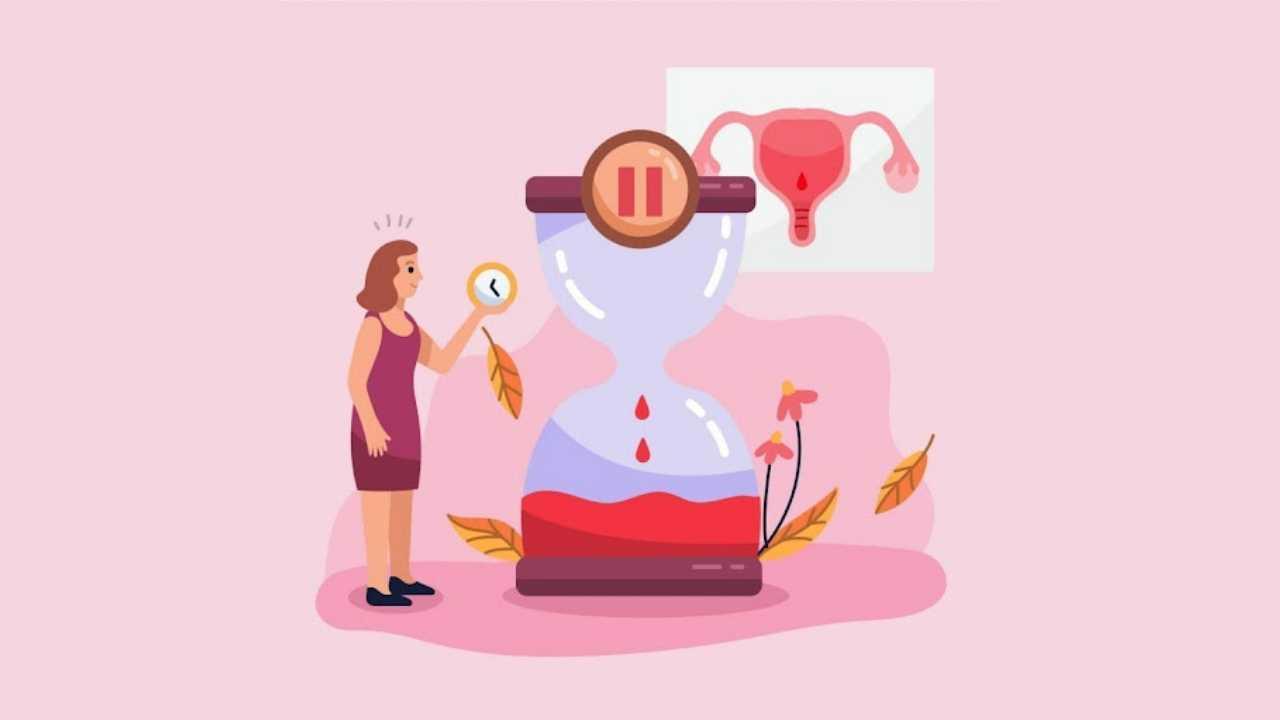Overview
When you reach the age of 45 or above and haven’t had a period in a year, you’ve entered menopause. If you’ve become accustomed to not having your period and suddenly starts bleeding, it can be frightening. This bleeding which happens after menopause is called post-menopausal bleeding. Not all causes of post-menopausal bleeding are problematic.
Whatever you do, make an appointment with your doctor to discuss your post-menopausal bleeding. You’ll need to go for a checkup to receive a definitive diagnosis. Here’s a brief on post-menopausal bleeding.

What is postmenopausal bleeding?
Menopause is a time in a woman’s life when her reproductive hormones begin to decline and her menstrual period end (about age 51). Bleeding that happens after menopause is known as post-menopausal bleeding. It’s not usual for a woman to have vaginal bleeding more than a year after her last menstruation.
Spotting (minor bleeding) or severe bleeding are both possible. Endometrial polyps and other benign (noncancerous) gynecological conditions are common causes of post-menopausal bleeding.
The most frequent type of reproductive cancer causing post-menopausal bleeding is uterine cancer (more common than ovarian or cervical cancer), bleeding after menopause is a symptom of uterine cancer in around 10% of women (endometrial cancer).
Causes
- Vaginal or endometrial atrophy (lining of the uterus or vagina becomes thin and dry).
- Endometrial cancer or uterine cancer (cancer in the uterus’s lining).
- Hyperplasia of the endometrium (the uterus lining gets too thick and can contain abnormal cells).
- Polyps in the uterus (growths in the uterus). Hormone replacement therapy (HRT) is a treatment that replaces hormones in the body (estrogen and progesterone supplements that decrease some menopausal symptoms).
Other factors to consider are:
- Endometritis or cervicitis (infection or inflammation in the cervix or uterus).
- Cervical cancer is a type of cancer that affects the female (cancer in the cervix).
- Bleeding from other surrounding locations, such as the bladder or rectum, or bleeding from the vulva’s skin (outside near the vagina).
Is post-menopausal bleeding severe?
After menopause, a variety of disorders might cause bleeding. We’ve compiled a list of some of the most serious causes of post-menopausal bleeding.
Endometrial hyperplasia develops when estrogen levels are too high, and progesterone amounts are too weak due to hormone replacement therapy. The thicker endometrium is more likely to bleed, and if left untreated, the endometrial cells might multiply abnormally, leading to cancer.
Polyps are noncancerous tissue growths that arise from the endometrium and connect to the uterine wall. After menopause, polyps can produce irregular and dark bleeding. Polyps on the cervix can also cause sex-related bleeding.
Vaginal Atrophy The tissues in your vagina might change and become brittle, thin, dry, and inflammatory when your estrogen levels drop. After menopause, this might result in painful intercourse, urinary discomfort, discharge, and bleeding or brown spotting.
Cancer After menopause, vaginal bleeding is one of the first signs of certain types of cancer. Endometrial and uterine cancers are the most frequent gynecological malignancies, but cervical and vaginal cancers also affect many women.
Even though post-menopausal spotting or bleeding is a common cancer symptom, only 9% of women with postmenopausal bleeding have cancer.
20+ Years Of Experience as Fertility Specialists
20 Years Of Experience as a Fertility Specialists
National Fertility Awards 2023
Call Us
+917042874533
Book An Appointment
Follow Us On
When to see a doctor?
If you’re experiencing vaginal bleeding, call your doctor:
- It’s been over a year since your last menstrual cycle.
- After more than a year of hormone replacement treatment (HRT)
In the years leading up to menopause, it’s common to experience irregular vaginal bleeding. A superficial infection or benign growths could be the cause. However, bleeding may be an indication of uterine cancer in some circumstances. If you’re bleeding more than a year after your previous menstrual cycle, you should contact your doctor.
Your doctor may offer a variety of tests and procedures to determine the source of post-menopausal bleeding.
- Ultrasound (transvaginal)
- Biopsy of the endometrium
- Hysteroscopy
- Sonohysterography
- D&C (dilation and curettage)
FURTHER READING
Conclusion
The most crucial step, like with most other diseases, is to acquire a timely diagnosis when it comes to post-menopausal bleeding. You and your doctor will be able to explore treatment choices and decide on the best course of action for your specific case once you know what’s causing your symptoms.
It can be frightening to discover that you’re bleeding after menopause. Usually, the underlying diseases can be cured with straightforward therapeutic choices. Maintaining your overall health and well-being should always be your priority.
For more information on post-menopausal bleeding, connect with our team of experts now!
You can talk to our obstetrician-gynecologist if you need information about Post-menopausal Bleeding and pregnancy.
Share this with
Related Blogs
404
OOPS! PAGE NOT FOUND
Sorry but the page you are looking for does not exist, have been removed, name changed or temporarily unavailable
Back to home pageFollow Us On
About Author



